Observers of the present regime know: an uptick in the president’s use of a particular word or theme is a telltale sign of change to come. For weeks now, the trending theme in presidential discourse is an administrative cleanse or purification (Tat’hrir al idara) to remove those considered to have been « unduly introduced » into the public service. After harping on this objective in posts on the presidency’s official Facebook page, Saied placed it atop all other priorities for the country’s newly appointed prime minister, Ahmed Hachani. A draft decree along these lines is also underway, the president indicated on the same occasion. In the meantime, the planned purge itself—which falls right in with the government’s modus operandi since July 25, 2021—comes as no surprise.

In his two last books, « The Years of Sand » [1] and « The Years of Clay » [2], historian and former Director of the Office of the President Adnen Mansar examines the particular rapport between elites and each regime in power since 1956. The author notes that the strongman or dominant group of every regime has sought to appoint members of his own circle to key posts in government, a phenomenon in no regard exclusive to Tunisia. In contrast, Mansar points out, under Kais Saied the number of dismissals by far surpasses the number of such appointments. Two explanations for this trend are offered. For one, with the exception of a restricted circle of close contacts, Saied has neither party nor structured social group capable of defending his choices. Furthermore, the president’s characteristically mistrustful nature and negative experiences with his closest collaborators (notably the former director of his office, Nadia Akacha), are very likely the cause of his distaste for new appointments. This situation has resulted in numerous vacancies at the level of senior public administration (ministries, embassies, governorates, etc.), as well as the fact that certain appointed individuals from within Saied’s own circle have proved less than effective within their designated roles. In spite of these shortcomings, the president is on a mission to cleanse the public service.
On the permanent lookout for a scapegoat
Saied’s mode of governance—combining conspiracy theory and the constant search for a scapegoat—provides context for this administrative purge. Ever since the president granted himself full executive power, he has remained on the permanent lookout for culprits upon whom to lay blame for the current situation and lack of concrete results under his leadership. Having first set out against the former parliament and political parties, Saied then went after judicial officials, independent courts, speculators, municipal councils and migrants. This method bears several advantages: it foments a climate of suspicion, projects political failures onto external factors and creates a sense that the country is a « stronghold under siege », thus inciting citizens to stand behind a leader. The president’s semantics stoke such tension, and indeed Saied has gone so far as to evoke a « national liberation war » against « traitors » and « sellouts ». This imagined state of war also serves to justify repressive measures targeting opponents, NGOs, migrants and anyone the regime qualifies as an enemy.
Tunisia: Kais Saied tightens his grip on civil society
A number of NGOs have expressed indignation at the recent humanitarian crisis involving migrants driven out of Sfax, and the government is not impressed. Associations openly critical of authorities are blaring on the president’s radar, as acts of intimidation targeting certain organizations portend an open war against civil society’s dissenting voices.
The purge’s intended scope, which has yet to be disclosed, will have a determinant effect on the alliances in power today. Initially, official discourse suggested that the targeted group consists of public officials who were recruited during the post-revolution decade beginning in 2011. This rhetoric, popularly used by adversaries of the country’s democratic transition, is founded in facts which are true but highly romanticized. By their account, the public administration at that time was flooded by Islamists. While it is indeed true that Islamists more than any other group stood to benefit from the legislative amnesty voted in 2011, recruitment over the following decade drew from a far broader demographic. What is more, the posts filled during this period were characterized by fixed-term contracts and temporary work, employment within state regulatory bodies (police, justice, army) and newly created jobs within « environmental firms ». The governments formed between 2011 and 2021 were forced to buy social peace and at the same time fulfill the basic requirements of a normally-functioning administration.

Potential targets
Today, however, there is evidence which suggests that the planned purge may not be limited to Islamists and their allies from the post-revolution decade. First of all, the unexpected designation of Ahmed Hachani as head of government is laden with historical symbolism. A retired Central Bank employee and proclaimed supporter of a parliamentary monarchy, Ahmed is the son of Salah Hachani, a Youssefist opponent of the Bourguiba regime. Hachani senior was a military officer and descendent of Ali III Bey. In 1962, he was arrested for his involvement in the so-called conspiracy to undermine national security. Accused of attempting to overthrow the president, a number of officers—among them Hachani—were sentenced to death and executed in January 1963.
Saied, a history buff, could hardly overlook these details. Given the president’s allegiance to a « national liberation war », his account of history clashes with Bourguibist discourse which holds that the country’s independence was concluded in 1956. Launching any sort of attack on that narrative, however, would probably not come without consequences for the administration since Abir Moussi, one of Saied’s main opponents, still maintains ties within government. Threatened by Hachani’s appointment, Moussi has voiced her hostility regarding the president’s choice for this post. Similarly, the convocation of Awatef Dali, CEO of Tunisia’s national television station, was evidently spurred by dissonant versions of Tunisian history. Having reproached the station’s diffusion of nostalgic programming that glorifies « the good old days », Saied lashed out against the former regime, denouncing certain employees of the public broadcasting company who « went underground » during the fall of the Ben Ali government in efforts to hold onto their posts.
Najla Bouden: Poor economic record, outstanding support for repression
Her departure from the Kasbah has been as discreet as her arrival. A late night post on the Office of the President’s Facebook page informed Tunisians of Prime Minister Najla Bouden’s dismissal from office. After less than two years serving at the head of government, this unassuming university professor is leaving the field with an underwhelming track record in confronting socioeconomic issues. What is remarkable about Bouden’s term is how she stood by an increasingly authoritarian regime.
The current regime is poised on an alliance between Kais Saied’s restricted circle of close contacts and administrative elites in the broadest sense. Given the single-party structure which dominated between the country’s independence and revolution, the majority of these elites maintained close ties with the former regime. As Adnen Mansar indicates in « The Years of Clay », although this objective alliance was forged in solidarity against a common enemy—i.e., the regime which emerged during the post-revolution decade—the reasons behind that enmity are distinct and often contradictory. While adherents of the old order wish to bring an end to liberties they deem anarchical, certain partisans of Saied’s reign are fiercely opposed to the legacy of the Bourguiban nation-state, whether on economic, political or social grounds. A purge which targets elites affiliated with the Ben Ali regime could undermine the tacit agreement between the latter and President Saied, who proclaims his commitment to « continuing the revolution ». It is worth noting here that an administrative cleaning house may address one of the IMF’s conditions that Tunisia reduce the public sector wage bill.
With his endeavor to « cleanse the administration », Kais Saied has designated a new scapegoat for the multifaceted crisis gripping the country. On the other hand, the scope of this witch hunt could upset the fragile web of alliances within a regime that pledges allegiance to the revolution while harboring ties with the old elites.
[1]عدنان المنصر، سنوات الرمل، تفكر في معارك الانتقال الديمقراطي (2011 ـ 2014)، سوتيميديا 2021
[2]عدنان المنصر، سنوات الطين، تونس من الديمقراطية الكسيحة إلى الاستبداد الشعبوي (2011 ـ 2014)،
سوتيميديا 2023
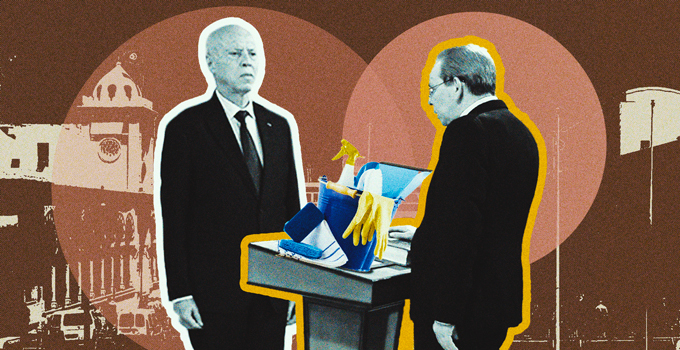
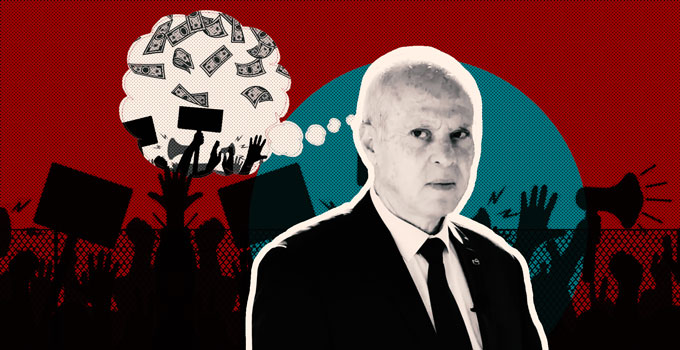
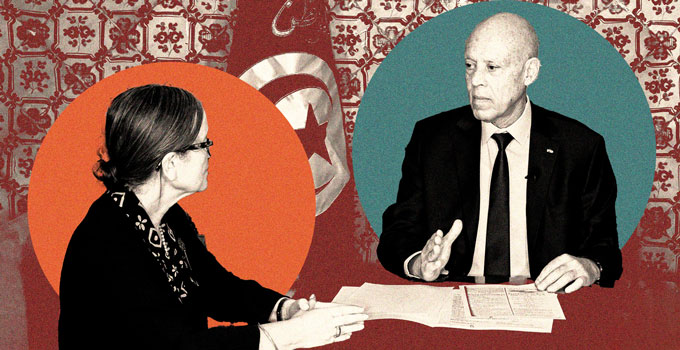
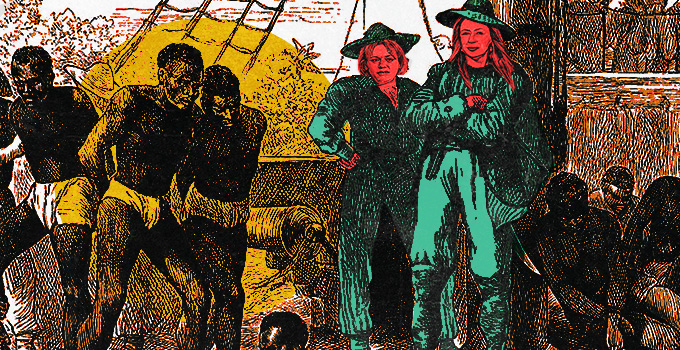
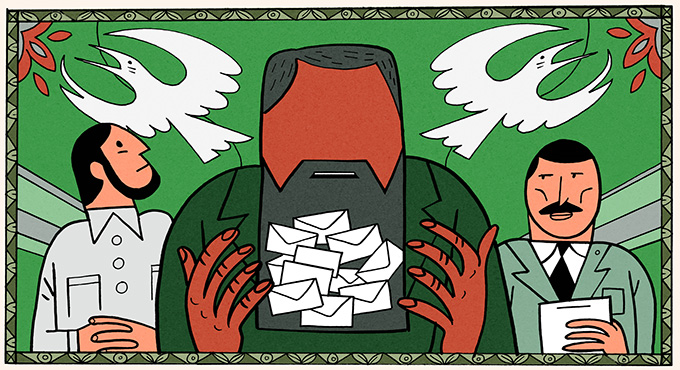
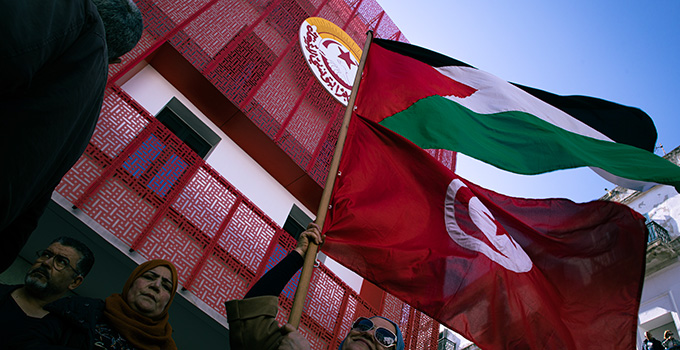

iThere are no comments
Add yours